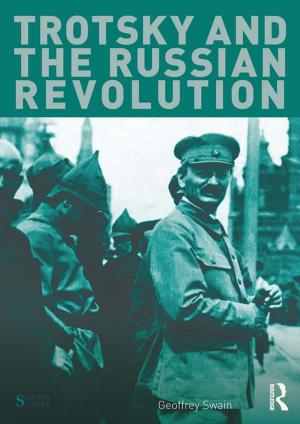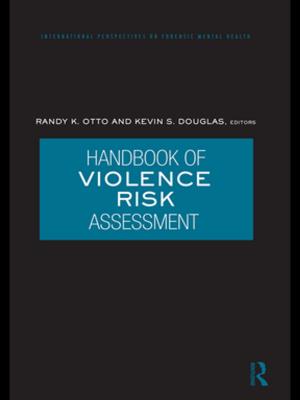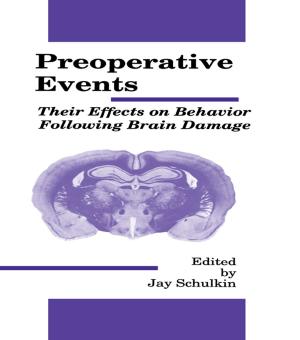| Author: | Shirley Fisher | ISBN: | 9781317237358 |
| Publisher: | Taylor and Francis | Publication: | December 22, 2015 |
| Imprint: | Routledge | Language: | English |
| Author: | Shirley Fisher |
| ISBN: | 9781317237358 |
| Publisher: | Taylor and Francis |
| Publication: | December 22, 2015 |
| Imprint: | Routledge |
| Language: | English |
Originally published in 1987, this title is concerned with the association between stress and control, and the implications for strategic response. It aims both to provide an up-to-date, comprehensive account of research in the area of stress for the advanced student and to develop a new synthesis of ideas leading to a cognitive model of stress and illness. The book reflects the idea that responses to stressful conditions are likely to be strategic, designed in order to achieve control in different ways. Concepts such as responsibility, instrumentality and predictability are discussed in an attempt to make the relationship between stress and control explicit. Different forms of the exercise of control are identified as features of strategy.
A cognitive model of illness is developed, which assumes that the characteristics of strategies specified in terms of modes of control determine the features of ‘arousal pathology’ via hormone routes and thus influence the risk of illness. This differs from existing models at the time, which emphasise environmental properties such as incongruence, status inconsistency or ‘rule breakdown’ as determinants. A ‘constrained resource’ approach is emphasised, in which cognitive style and particular experiences exercise constraint on the range of strategies available in cognition. Hence these factors influence the risk of different kinds of ill health when life stresses are encountered. The book provides details of evidence and theory as well as new ideas and models. It will still be of interest to students of psychology, social science and medicine, who are concerned with stress and its relationship with human and health efficiency.
Originally published in 1987, this title is concerned with the association between stress and control, and the implications for strategic response. It aims both to provide an up-to-date, comprehensive account of research in the area of stress for the advanced student and to develop a new synthesis of ideas leading to a cognitive model of stress and illness. The book reflects the idea that responses to stressful conditions are likely to be strategic, designed in order to achieve control in different ways. Concepts such as responsibility, instrumentality and predictability are discussed in an attempt to make the relationship between stress and control explicit. Different forms of the exercise of control are identified as features of strategy.
A cognitive model of illness is developed, which assumes that the characteristics of strategies specified in terms of modes of control determine the features of ‘arousal pathology’ via hormone routes and thus influence the risk of illness. This differs from existing models at the time, which emphasise environmental properties such as incongruence, status inconsistency or ‘rule breakdown’ as determinants. A ‘constrained resource’ approach is emphasised, in which cognitive style and particular experiences exercise constraint on the range of strategies available in cognition. Hence these factors influence the risk of different kinds of ill health when life stresses are encountered. The book provides details of evidence and theory as well as new ideas and models. It will still be of interest to students of psychology, social science and medicine, who are concerned with stress and its relationship with human and health efficiency.















